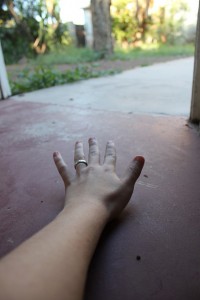Classical outreach programs are proliferating. See, for example, the ones at Oxford, the University of Cincinnati, the Classics in Communities Project in the UK, and the variety of outreach initiatives at the SCS. The problem with the term outreach is the slight air of desperation. There must be people “out” there who have never heard our message, who need to be “reached.” Hands extend into a void, waving cheerfully at passersby, signaling for attention, anxious not to be ignored. I believe we should think less in terms of reaching out and more in terms of service, of finding places where our skills are needed or welcome, even when those are not the places that our ordinary professional lives typically take us. Possibly the best current example of this is the series of workshops run by Classics in Communities, bringing support to those in schools with no Latin programs who want nonetheless to teach Latin. I can think of two other areas where there is a certain void, a space where the voices of Classicists without Borders would potentially be welcome, even useful, but have not so far been heard very much. The first is podcasting. The podcast medium is widely enjoyed as recreation be people as they exercise, walk, travel, go about housework routines, etc. This is an audience hungry for new content, eager to explore new ideas, and interested in all sorts of things. Perhaps they studied Latin at school, or have always had a love of mythology. The mechanics of producing and delivering podcasts to this audience are well within the technological competence of most classicists. Success in the medium, as with much teaching, requires a conversational style, a sense of humor, and an ability to tell stories. A second area is that of digital project reviews. The vast majority of people who are not professional classicists find their information about the classical world on the internet, and there is a heartening proliferation of good quality digital projects about the ancient world. Still, there is a good deal that is slapdash and ill-informed. Who can tell the difference? Classicists can. Where is there a reliable venue of critiquing, evaluating, and commenting on digital resources? Nowhere. The SCS Communications Committee (which I currently chair), among its other activities, is creating just such a venue as part of the SCS website and blog. When qualified review of open digital resources becomes as routine as it is for monographs, the prestige and the quality of open online publications will rise. The SCS Communications Committee has created a clear set of guidelines for such reviews, and is actively soliciting reviewers and projects to review. Please leave a comment if you have any suggestions for this, or ideas about other “Classicists with Borders” initiatives.
Classicists without Borders
9
